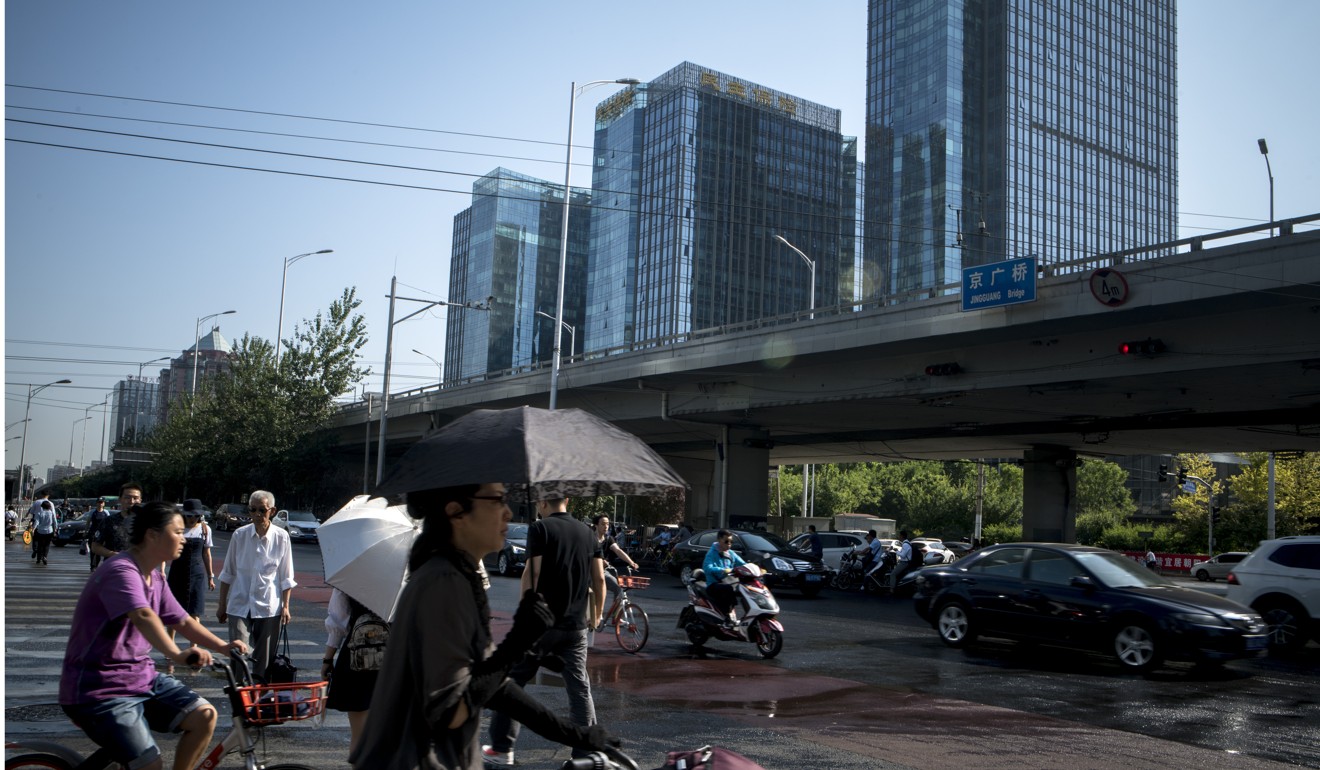
China’s P2P lending crisis worsens as second firm runs into trouble in a week
- Xinhehui says it will not be able to repay investors a total of US$330 million
- China’s intensified online lending crackdown is expected to slash number of lenders to 300 at the end of 2019
Mainland China’s peer-to-peer (P2P) lending crisis showed no signs of abating after another big platform said it would not be able to repay investors 860 million yuan (US$125.4 million) when the debts expire this weekend.
Xinhehui, a Hangzhou-based P2P operator which has conducted online lending businesses worth more than 210 billion yuan, has vowed to work out a new restructuring plan to resolve the issue, but thousands of affected investors were unconvinced and disappointed with how the company has managed their assets.
“We want the company to show us the details of their operations and the bad-loan data,” said Wei Xue, one of the 17,000 victims of the default. “The management does not seem to have a right attitude towards the crisis.”
Xinhehui held a meeting with representatives of the 17,000 investors on Wednesday to inform them of the potential default, and proposed a debt-for-equity swapping plan which they rejected, according to two investors who attended the session.
Investors were also unlikely to receive payment for another 1.4 billion yuan of debts that will expire on May 6, according to the attendees.
Calls to Xinhehui and its owner Chen Hangsheng were unanswered on Friday, but the company said in a brief statement on its WeChat account that the money would eventually be paid back without giving a time frame or if the full principal would be repaid.
We want the company to show us the details of their operations and the bad-loan data
China’s P2P industry, once touted by the government as an innovative model to help reform the mainland’s finance sector, saw a wave of collapses last year as these online lenders grapple with liquidity problems amid authorities’ strengthened oversight.
Technically, P2Ps are information providers, matching borrowers and depositors over the internet while charging service fees.
However, many of them have also collected deposits from individuals, offering them annualised returns of at least 8 per cent, and then lending the funds to cash-hungry businesses such as property developers at lofty interest rates.
Aside from swindling investors out of their savings, some of the platforms collapsed as third-party borrowers fell victim to an economic slowdown, becoming unable to repay their loans.

Bloomberg reported that Shanghai-based Yidai said it had set up a committee to start refunding its lenders after months of losses. It reportedly has about 32,000 lenders with an outstanding principal balance of 4 billion yuan, and expects to repay them in three to five years.
According to consultancy 01caijing.com, about 1,200 P2P firms remained operational by the end of 2018, compared with the peak of more than 6,000 a few years ago.
Chinese regulators have stepped up their crackdown on illegal lending businesses via the platforms, requiring them to appoint custodian banks and make full disclosure of the use of deposits. Industry players expect only 300 platforms to survive the intensified scrutiny and continue operations by the end of this year.
Xinhehui, in which Shanghai-listed Meidu Energy is a shareholder, has 6.3 million users, according to its website.
The company said the revised restructuring plan would be unveiled in the coming days, but disgruntled investors, who had demanded the company to show them detailed documents about the flow of the money, said they held low expectations of it.
“The owner appeared to be indifferent about our losses,” said one of investors who declined to be identified. “We will take action if the company’s new plan fails to satisfy us.”

